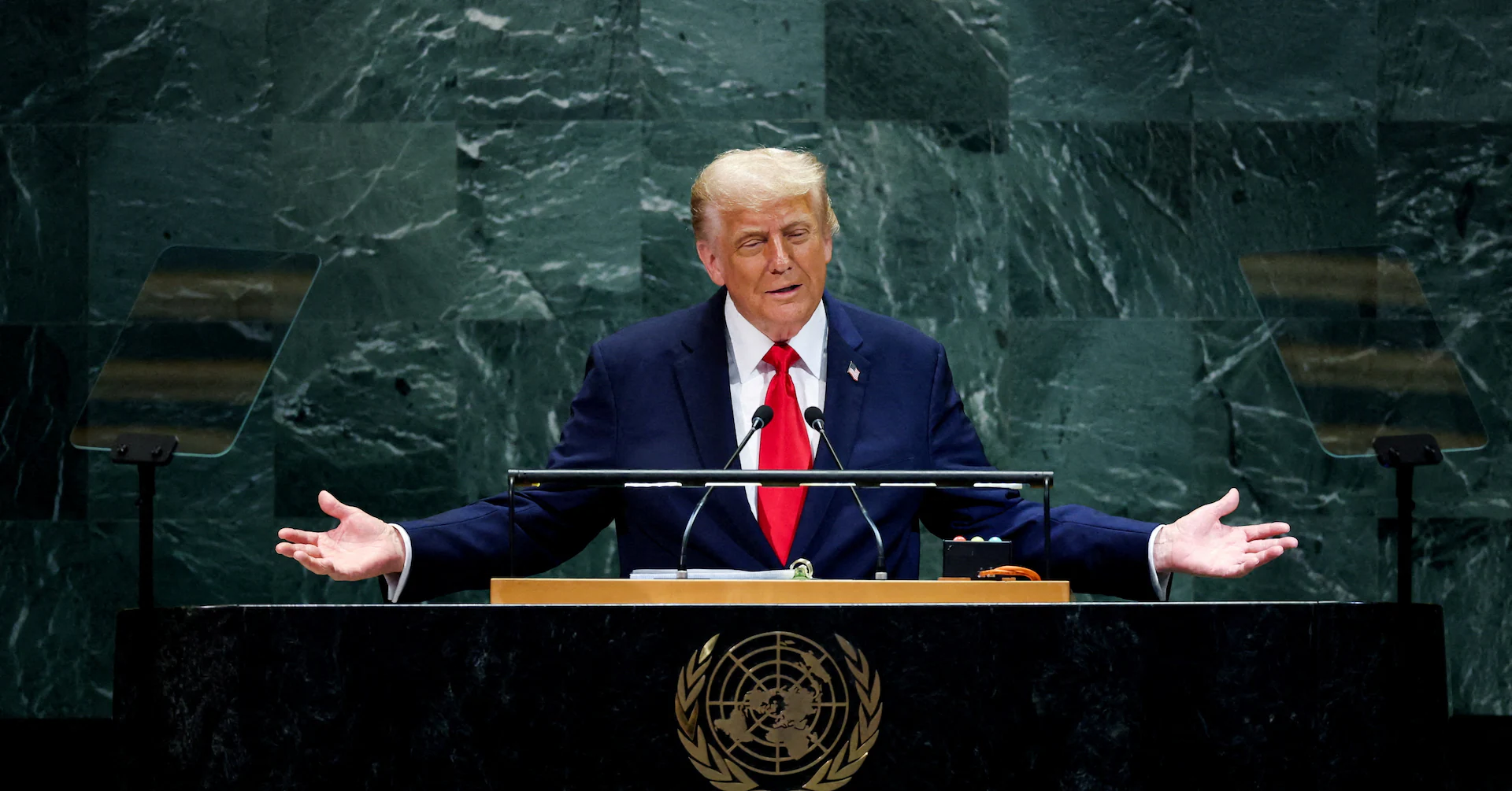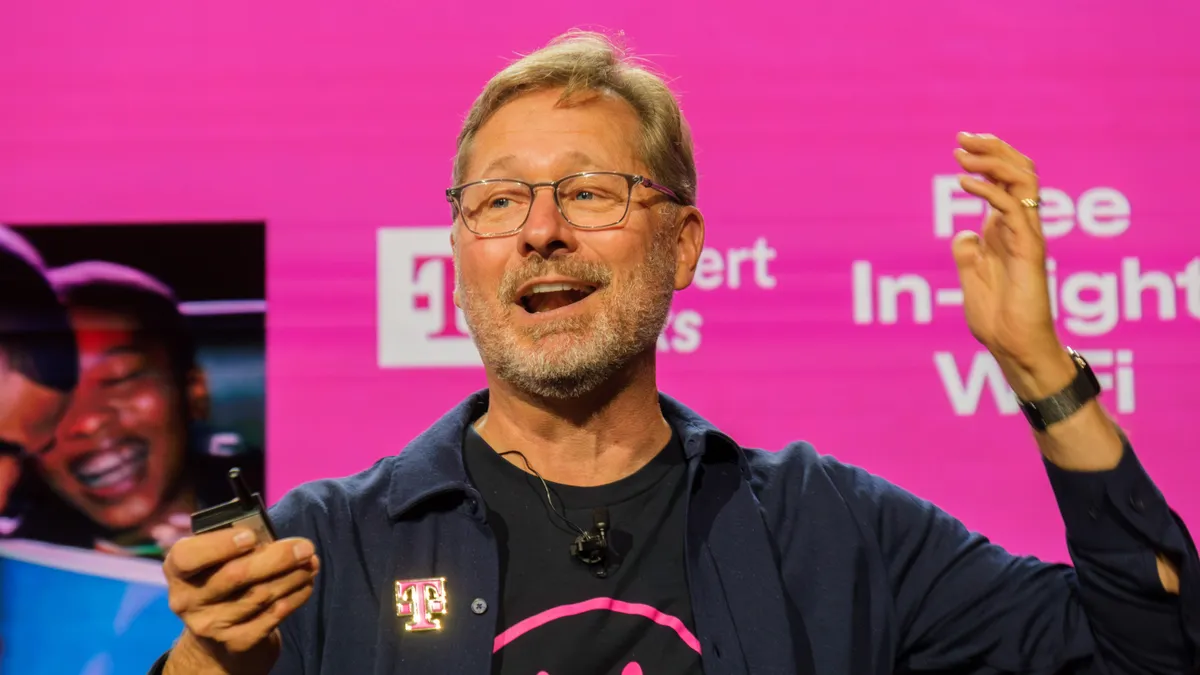
This is an excerpt of the Sustainable Switch newsletter, where we make sense of companies and governments grappling with climate change, diversity, and human rights on Tuesdays, Thursdays and Fridays.
Sign up here.
Hello!
Well, the cat’s out of the bag! Lock me up and throw away the key as it looks like I’ve been writing about “the greatest con job” for years.
At least that’s what United States President Donald Trump said during his address to the United Nations General Assembly, doubling down on his skepticism of global environmental initiatives and multilateral institutions.
“It’s the greatest con job ever perpetrated on the world, in my opinion,” Trump told the General Assembly.
“All of these predictions made by the United Nations and many others, often for bad reasons, were wrong.”
He added: “They were made by stupid people that have cost their country’s fortunes and given those same countries no chance for success.”
Here at Reuters, we delve into the facts. Let’s dissect those statements.
‘Greatest con job’
Scientists say climate change is real, mostly caused by humans, and getting worse.
They point to rising temperatures, stronger storms, and melting ice as clear signs. Groups like the U.N. have warned that waiting too long to act could cause serious damage to the planet and people.
There was also the finding that Switzerland’s 5.4 km-long Gries Glacier, a focal point for research, is retreating at an alarming pace as climate change accelerates an unprecedented ice melt across the country, the Swiss glacier monitoring service said.
And according to research published in Nature Medicine this week, more than 62,700 people died in Europe from heat-related causes in 2024, with women and the elderly representing the largest part of the death toll.
The summer of 2024 was the hottest on record in Europe, according to the European Union’s Copernicus Climate Change Service.
How about the predictions?
It is unclear what U.N. predictions Trump was referring to, but in any case, the last global scientific consensus on climate change was released in 2021 through the Intergovernmental Panel on Climate Change (IPCC).
Scientists say evidence shows global warming and its impacts have since been unfolding faster than expected.
Earlier this year, scientists found that the world may already have hit 1.5 degrees Celsius (2.7 F) of warming above the average pre-industrial temperature – a critical threshold beyond which it is at risk of irreversible and extreme climate change, scientists say.
It is also unclear who the ‘stupid people’ are that Trump was referring to.
If it is the scientists at the IPCC, then it is worth noting that the institution is currently being led by British scientist Jim Skea, a professor of Sustainable Energy at Imperial College in London – a university that is often ranked in the top 10 worldwide and in the top two in the United Kingdom.
Why does it matter?
Trump’s rhetoric against science, knowledge, environmental, social and governance (ESG) policies pose a larger threat.
He has withdrawn the U.S. from the U.N. climate pact whilst ramping up fossil fuel use and rolling back renewable energy initiatives.
Kelly and Hawkins’ study found “a significant trend of greenhushing, a public posture of silence that further threatens the momentum of coalition collapse, and ultimately, the power of collective action,” they added. This is what happened to the mass exit of many firms from initiatives such as the Net Zero Banking Alliance and the Net Zero Insurance Alliance earlier this year.
But some world leaders are pushing back. China led several countries in announcing new climate plans and offered a veiled rebuke of the U.S. president’s anti-climate speech while Brazil committed to reducing emissions by 59%-67% by 2035 and to stepping up efforts to combat deforestation.
And U.N. Secretary-General Antonio Guterres assured delegates that the world was making progress in the energy transition, even if it was slow.
Keep on scrolling for more commentary on why anti-ESG measures carry costs from a London Business School professor in today’s ‘In Conversation’.
IN CONVERSATION
Dr. Ioannis Ioannou, associate professor of strategy and entrepreneurship at London Business School, shares his thoughts on ESG rollbacks:
“Pushback against ESG has become a defining feature of today’s U.S. policy landscape. The debates are loud, polarizing, and they ripple well beyond American borders.
“Companies hear constant calls to scale back, dilute commitments, or treat ESG as optional.
“The harder choice is to resist that pressure.
“Courage in this context means holding steady even when it carries near-term costs, because long-term resilience depends on consistency and trust.
“This comes into sharp focus around the social dimension of ESG.
“In the United States, shifting immigration policies, political rhetoric, and social tensions leave many employees anxious about their right to stay, their ability to move freely, and their personal safety.
“In those moments, employers become a primary source of stability and reassurance.
“Companies that invest in practical safeguards, whether through legal guidance on immigration shifts, structured relocation support, or resources that address daily well-being, signal that they are willing to shoulder part of the burden.
“These measures carry costs, yet they deepen trust and allow employees to focus with confidence rather than anxiety. Standing firm amid political turbulence becomes both a responsibility and a mark of leadership, setting a standard that resonates far beyond the US.”
ESG SPOTLIGHT
It’s been quite the heavy newsletter today, so I will leave you with a lighter story from one of our curious investigative reporters who sought to answer an important question for any Londoner – can one really catch a big fish in the River Thames?
Click here for a special report from Pulitzer Prize-winning global investigative reporter Steve Stecklow who braved the great Thames – recently under scrutiny for being a dumping ground of raw sewage for years – and shrugged off potentially contracting E.coli to “land a lunker”.
Think your friend or colleague should know about us? Forward this newsletter to them. They can also subscribe here.



